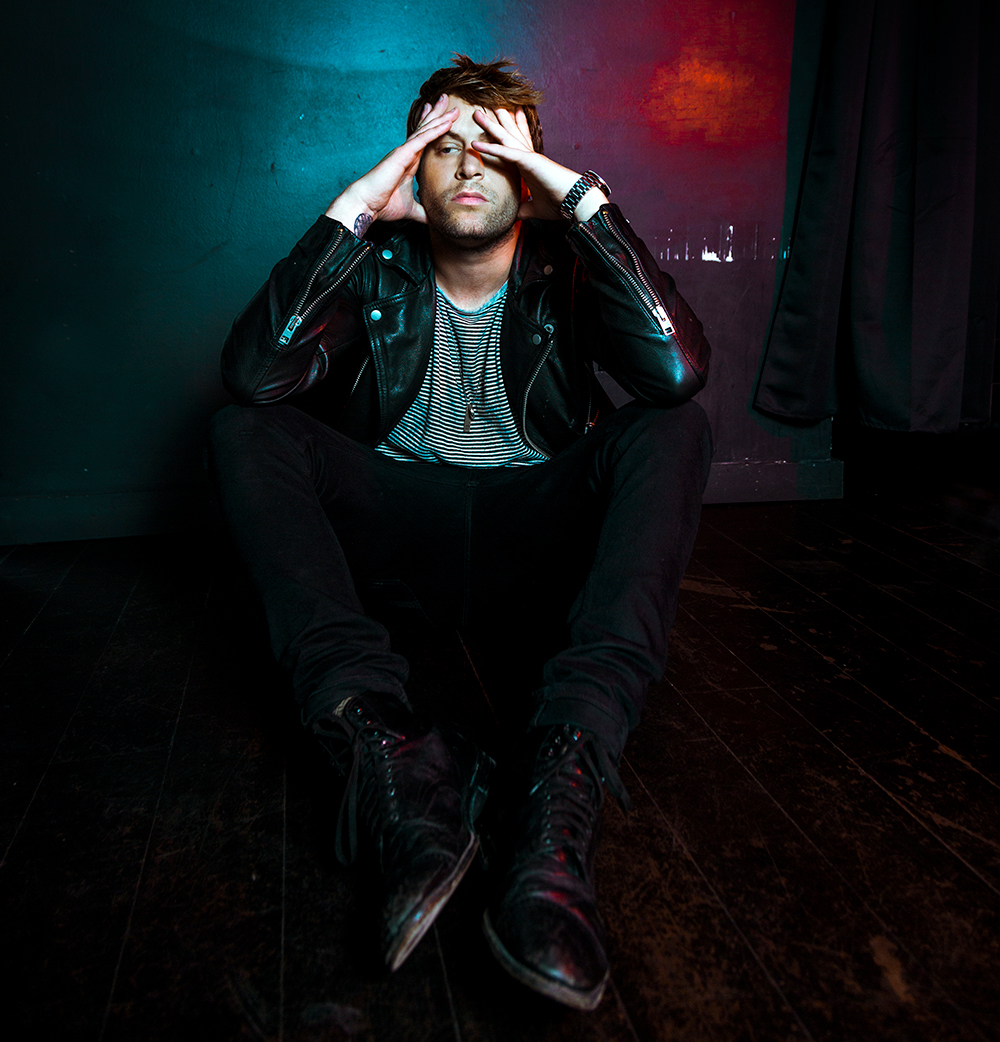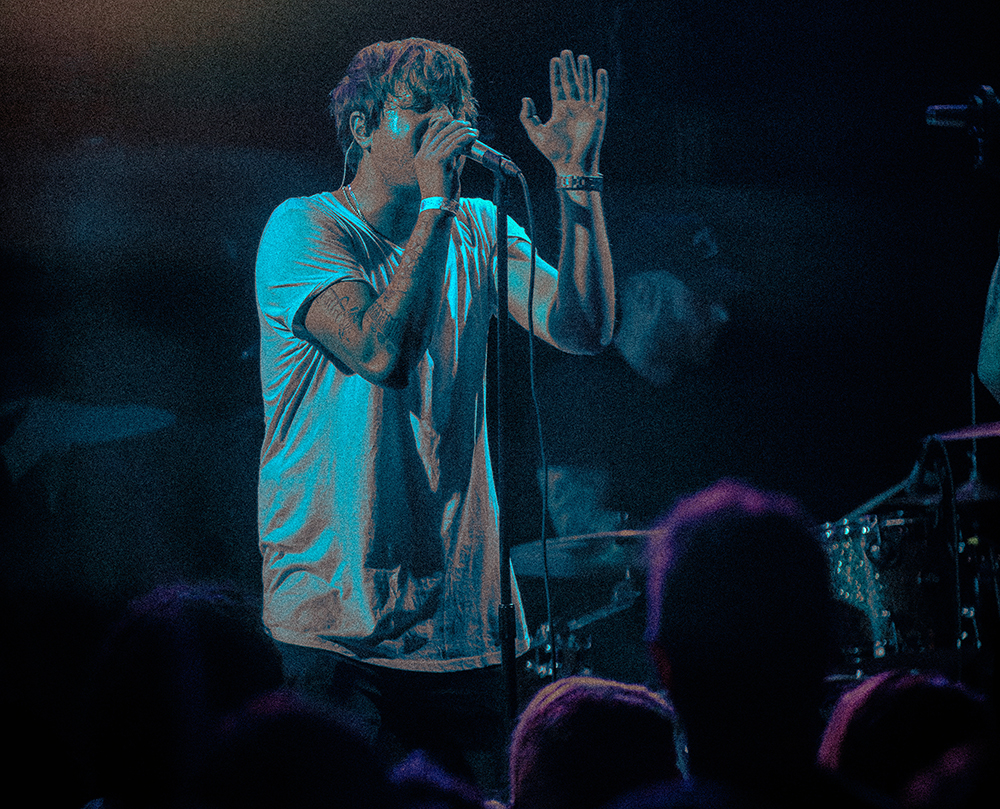
At 30, Leawood native Colin Dieden would seem to have the world on a string. After impulsively moving to LA after high school, Dieden accomplished that most longshot of dreams—making a living through music. For 10 years he performed with the alt-pop band The Mowgli’s and this year, he inked a solo deal with Sony Music.
His infectious new single, As Good as it Gets, dropped to rave reviews, but the raw lyrics peel back the veneer of his Golden State of mind.
“I got this tendency /
Just leave it up to me, to be sad in paradise.”
In a long phone call, Dieden sounds like an introvert trying hard to be extroverted. You can almost hear him listening. He pauses before answering and often volleys a question back with a question. Again and again he signals disinterest in sharing details of his sunny Southern California life and instead caroms back to his Kansas City roots or his two rescue dogs.
From where are you talking to me today?
I am in Los Angeles where I live, on my couch [laughs]. Where are you talking to me from?
Matfield Green, in the Flint Hills, in Kansas.
Wow, that’s the only town in Kansas I haven’t heard of.
There are only 50 people here.
That sounds like heaven. That is the ultimate goal. That is what I’m doing all this for.
To live in rural Kansas, or just somewhere remote?
[Laughs.] Really, I don’t know. I’ve always said I want to move back to Kansas. I’ve been saying that for 13 years. I can’t really do that with my job. I do dream about it.
What is appealing about Kansas now that you live in Los Angeles?
Do you want it, like, alphabetically [laughs]? Pretty much everything. You know I’m from Overland Park.
I know, like all these other famous people that leave Overland Park and make it big in California. Is it something in the water?
I think there’s five of us, right? One magazine put out the 50 most famous people from Kansas—which, by the way, I shouldn’t have been on there—Robb Riggle, Paul Rudd, Eric Stonestreet and Jason Sudeikis and me. So I guess like five of us got out.
Do you know all those guys?
I don’t. I don’t know any of those guys.
Your story is not a typical Kansas City to California adventure tale.
No, definitely not, I mean half my family lives in LA, so I’ve been coming here my whole life. I’m pretty familiar with it. I was born in Venice Beach, and when I was about 6, I moved from Venice Beach to Leawood, which is kind of a big jump. So that was random and it happened to me.
But to this day I consider Kansas City my hometown. I’m very open about that, and I talk about it whenever I get the chance.
Your biographies always say you’re from Overland Park—is it really Leawood?
To be honest I don’t know the difference. I think Leawood is a small part of Overland Park, is that right?
Close enough. Where did you go to high school?
I did freshman year at Blue Valley North. Then I moved to Connecticut for a year. Then I came back to Kansas City and went to Blue Valley Northwest and then moved to Utah for a year, where I graduated high school, then I came back to Kansas City. So my high school experience was a nightmare. I was just all over the place and restless and my family was like, “We’ll send him here. Let’s try this out.”
How did music fit in during those restless years?
That was the only thing. There was nothing else.
What caused you to go back to LA?
When I turned 18, I was sitting around with a friend at his house and I literally said, “Hey, let’s move to LA and go see my Dad.” So we got in his van and drove to LA. My mom called me and said, “Where are you?” I said, “Arizona.” And that was it.
You’ve had a lot of success the last few years. What was your experience like in the music scene in the beginning?
I was writing pretty bad punk songs in Kansas. But I think that’s kind of how it starts for everybody – kind of chasing after things we hear on the radio. My best friend—he’s from Kansas, too—we cut our hair in mohawks and started doing Good Charlotte covers.
Then in LA I was with a band called The Mowgli’s, so for the last ten years I’ve been traveling and playing shows.
The Mowgli’s took off quickly, before you were even drinking age.
Yeah, none of us expected it to.
Was it when you were with the Mowgli’s that you started to carve out your own identity as a songwriter instead of just repeating what you were hearing?
I think taking risks is one of the hardest things in the world, especially in my business where everything is very fragile.
On some level I’m trying to make stuff that’s accessible enough that I can make money and provide for my family, right? But also I want to create things that are stimulating and interesting to me. So it’s kind of a balance.
But I’m sort of getting less interested in the first part of that. Things I think are going to be accessible or easy or marketable—I find less success in that than in the things that I don’t think about at all.

You released your latest solo work under the name “Little Hurt.” I read that the name has something to do with baseball. What’s the story?
That was my Little League nickname. I wish there was a better story. There was a baseball player named Frank Thomas [All-Star designated hitter for Chicago White Sox] who was called “The Big Hurt” so I was “Little Hurt” because I was smaller than him and not good at baseball [laughs].
How do you approach songwriting? Is it work or do the words come easily?
It’s work. Definitely. It’s a funny day for you to ask me that question because I’ve been writing every single day for, I don’t know, the last eight months. I’m pretty, pretty tired of it. Anyone who says it’s not work is lying. Anywhere in the world, you go to work, you’ve got to do your job over and over. If you’re a songwriter, you’ve got to write a song over and over. There’s no spiritual aspect that allows you to talk yourself out of the fact that you are doing a job.
“But to this day I consider Kansas City my hometown. I’m very open about that, and I talk about it whenever I get the chance.”
Do you give yourself office hours?
Definitely not. I have a lot of friends—a lot of them are way more successful than me—and every single day at the same time they go grind it out. I find that kind of kills the whole point.
I do a job, but I work hard to not have to go to a job, so I don’t know why I would try to make this not fun for myself. So I live like I would any other day and throughout the day—I have this note in my phone and my entire career depends on this one note in my phone. Throughout the day I think about these things that pop into my brain, like, ‘Here’s a title: As Good as it Gets or Messed Up or whatever.’ A lot of times, the titles are something I hear someone say in conversation. And then when I sit down to write, I pull from this note and make a story out of it.
The Little Hurt project is a glimpse of what it’s like to be me in 2019. That’s all I can do. I can’t write anyone else’s story, I can’t change the world, but I can document what it’s like to be me right now.
Do you ever read reviews of your work?
I read what I see, I’m sure I miss some things. I don’t seek it out, I don’t go through my YouTube comments—that would destroy me—you know: “Little Idiot” or whatever [laughs].
Are there times when critics see things in the music that you hadn’t originally seen and you think, “Yeah, OK, I can see that” or the opposite where you just have to laugh and think, “That’s not it,” but it’s OK because it’s their take?
That’s a constant thing. Every single review, every single article you read about yourself, it’s never the way you see it. Which I think is awesome, because that’s what makes art art, right? I see people talking all the time about the definition of art—it’s funny we’re talking about this, but we’re going there—people talk about what is art, what isn’t art. I think whether or not it’s art is whether or not it’s open to your own interpretation. So if you are able to interpret it differently than the author or the painter intended, that makes it art. Otherwise, it’s just a photograph or a movie or pornography if it can only be interpreted as one intrinsic thing.
What’s the thing you get the most pleasure out of—is it performing live? Is it recording a perfect track in the studio? Is it finishing a song and you feel like you nailed it when you’re all by yourself in a room?
[Pauses.] I don’t know. Maybe none of those things. I don’t think any of those are things I get the most pleasure out of. Probably when I’m hanging out with my dogs.
It’s like I’ve got this 24/7 life—I’m on stage, I’m on tour, I’m trying to figure out the best way to manage social media, I’ve got a manager and a label and an agent and a whole team.
It’s when I can forget that I have this whole life, when I’m just sitting there with my dogs, that’s a really happy, quiet, nice time.
After eight months of solid writing, what do you hope the end of the year looks like?
Not writing. That’s not a real answer. I’ve got a bunch of records to write, so I’m going to be writing. But I need to take a second to push the reset button soon so I can be fresh and not repeating myself.
Do you have a place you go that allows you to push the rest button?
Yeah. Whenever I have a spare second, I go to San Diego. It’s only an hour and 45 minutes’ drive, and it’s a beautiful beach, better than LA.
Interview condensed and minimally edited for clarity.


